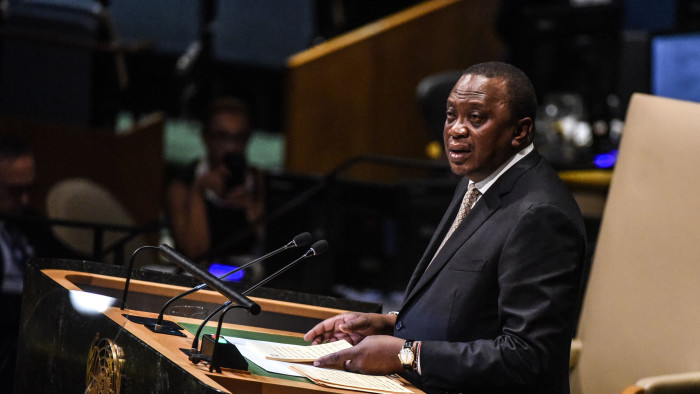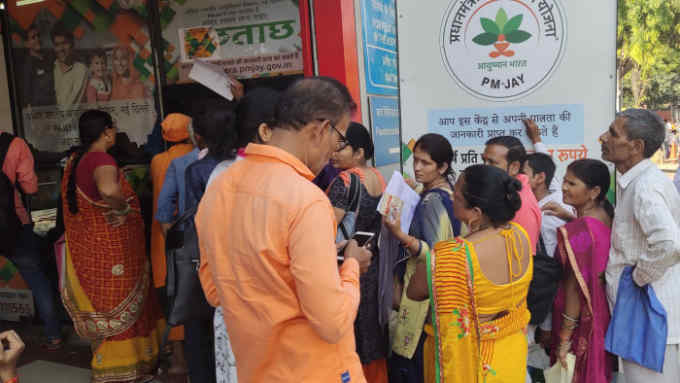Uhuru Kenyatta: Delivering heathcare for all in Kenya

Roula Khalaf, Editor of the FT, selects her favourite stories in this weekly newsletter.
In September 2015, I joined more than 190 world leaders at the UN General Assembly in New York, where we renewed the global commitment to fight poverty by launching the Sustainable Development Goals. Together, we took the pledge to work hard to ensure that the 7.5bn citizens of the world live in dignity, with improved health and education.
Last month we met again at the UN General Assembly to support the global movement toward universal health coverage. Kenya is determined to lead the way in achieving the SDGs and it is in this context that my administration has focused on the goal of ensuring health for all Kenyans by the year 2022 — eight years before the SDGs’ deadline of 2030.
For this reason, we have increased the health budget by 50 per cent in the last two years. Some have called Kenya’s target of health for all by 2022 overly ambitious, but we are prepared to fast-track this vision, recognising the importance of health for individuals, communities and, indeed, the economy.
We are fully aware that the economic gains Kenya has made over the past seven years can easily be clawed back by crippling healthcare costs. For that reason, we have made attainment of UHC a critical pillar of our strategy for sustained economic development.
In December 2018, Kenya launched the pilot phase of “Afya Care” — our brand of universal health coverage — in four of the forty-seven counties that constitute the second tier of our government. The full-scale expansion of Afya Care to the remaining forty-three counties, and, by extension, to every Kenyan, began last month.
Through this programme, our primary focus is to build resilient and responsive public health systems and to invest in preventive community healthcare. We are also undertaking health sector reforms and restructuring the National Hospital Insurance Fund and the Kenya Medical Supplies Authority to align these agencies with UHC financing and purchasing models.
To deliver universal health coverage, we will continue to build broad and meaningful partnerships with the private sector, global health agencies and our bilateral and multilateral partners, such as the World Health Organization, the Global Fund, Pepfar and the World Bank, among others.
We are leveraging these strategic partnerships to implement a national programme suitable for the unique needs and circumstances of Kenya. This collaboration will play a critical role in our strategy for achieving universal health coverage.
Kenya remains determined and committed to ensure that healthcare for all is realised. And because the health of Kenyans is intricately intertwined with the health of others, other countries in Africa and beyond should join us on this journey, so that together we can deliver this vital good to all our people.
The UN meeting on UHC underscored the far-reaching implications of health on economies and societies the world over. For the first time, the world has officially recognised the pivotal role that “health for all” can play in fostering global prosperity.
Uhuru Kenyatta is the President of the Republic of Kenya

Comments